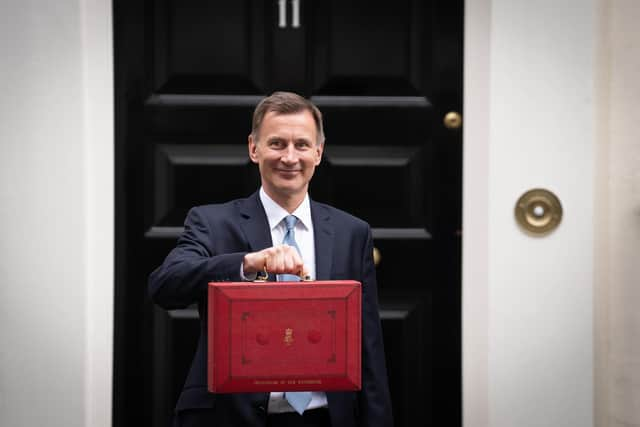Local authority financing has reached crisis point and requires the Government to act - Andrew Vine
He’s struggling these days, so as the new year dawns we’ll take it in turns to do his shopping, help out around the house and accompany him to the ever more frequent hospital appointments.
And although Philip has plenty of willing friends, he needs something more. He’s crying out for a professional carer who’ll come in every morning and evening, not just when work allows which is the case with the rest of us, to get him washed and dressed without falling yet again because he’s not too good on his feet, and sort him out with some lunch and an evening meal.
Advertisement
Hide AdAdvertisement
Hide AdExcept he can’t get one from his local council, even though he’s entitled to care because he hasn’t much money.


It isn’t that the council isn’t prepared to help. On the contrary, everybody who’s spoken to him has sympathy for him.
It’s that the council is struggling to find a care provider for Philip because what it can afford to pay doesn’t cover the costs of most firms. So until it can persuade somebody to accept what’s on offer, Philip is reliant on his friends.
There must be a lot of Philips out there who aren’t getting the care they need. Many like him, frail because of the illnesses that come with age, but others as well, with chronic health problems, or disabilities, or a whole variety of factors that render them vulnerable.
Advertisement
Hide AdAdvertisement
Hide AdAnd there are a lot of councils like Philip’s, too. Maybe even all of them, to a greater or lesser degree depending on how affluent their area is.
Inexorably, and in plain sight, councils are running out of money and next to nothing is being done about it by the Government, which raises a lot of worrying questions about the consequences for all the communities which rely on local authorities, often without realising just how much they do.
Here in Yorkshire, the most visible example is Kirklees where services face being slashed and hundreds of staff are at risk of losing their jobs in order to balance the books.
It remains to be seen how accusations of financial mismanagement against the controlling Labour group by opposition councillors and the campaign group Stop the Cuts – which are denied – play out, but what cannot be disputed is that a few months ago Kirklees warned that it was in danger of following Birmingham into bankruptcy.
Advertisement
Hide AdAdvertisement
Hide AdOver the next few months, as budgets are worked out for the coming year, we’ll hear from every other council in Yorkshire about the state of their finances, and the picture is going to be grim.
And one factor above all else is slowly driving local authorities towards ruin – the cost of social care, of trying to make life the best and most comfortable it can be for people like Philip.
Earlier this month, the Local Government Association wrote to the Chancellor, Jeremy Hunt, ahead of his autumn statement on November 22, setting out the dire state of council finances.
It said councils have suffered a 27 per cent drop in income over the past decade, which is bad enough, but the real shocker is the cost of care.
Advertisement
Hide AdAdvertisement
Hide AdSocial care costs have increased by 13 per cent over the past year. After education is funded, they now account for almost 64 per cent of council spending, up from 56.5 per cent in 2016/17.
Other costs are rocketing too. Later today, representatives from 100 councils will gather in Eastbourne for what they are calling an emergency summit about the spiralling bill for providing emergency accommodation for the homeless, running at £1.7bn a year. Ministers have long unfairly characterised those who run councils as moaners who waste money, but that line of argument doesn’t stand up to scrutiny, if it ever did, because the local authority financial crisis over social care is having knock-on effects that demand action from the Government.
Last week, the Commons Public Accounts Committee highlighted a lack of care provision as a key factor in the problems of the NHS. Shortages mean patients can’t be discharged from hospital, which blocks beds.
At the heart of the problem is a long-standing failure by the Government to properly integrate social care into the country’s overall health system, treating it as an essential nationwide service that needs to be funded and managed in tandem with the NHS. Instead, ministers have long passed the buck to local authorities. A change of government would not necessarily help. Labour have been notably quiet on how they would pay for social care.